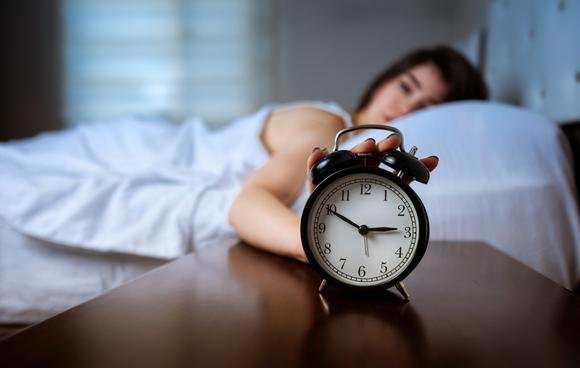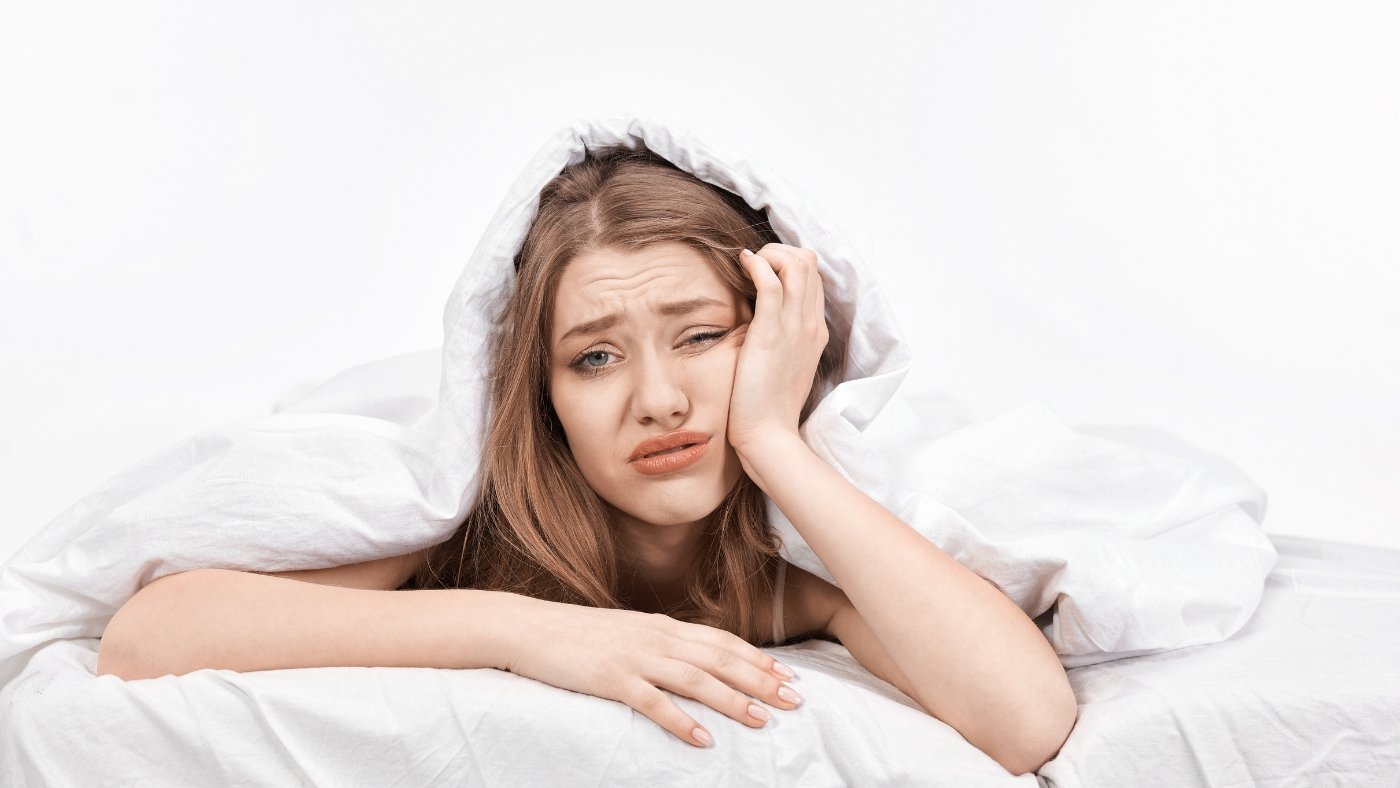Difficulty falling asleep? Do you often wake up at night? Constantly feeling tired and sleepy? About one in three people experience it. Nowadays, a large part of the population of modern society suffers from various sleep disorders. It is very important to know when to get up and when to go to sleep so that we wake up refreshed and energetic. The causes of insomnia can be very diverse.
A character in one book who suffers from insomnia said: "when you suffer from insomnia, everything around you becomes a copy of a copy, which is also a copy." ("Struggles club”; Chuck Palahniuk)
If you don't get enough sleep one night, you usually get enough sleep the next and feel good right back. But how long does the human body need to sleep?

Types of insomnia:
Chronic insomnia
Chronic insomnia is when a person experiences sleep disturbances and related symptoms, such as fatigue and difficulty concentrating, at least three days a week, for more than three months, or repeatedly for a year. It is estimated that about 1 in 10% people have a chronic insomnia disorder.
People with chronic insomnia often feel anxious about not being able to fall asleep. Symptoms are usually severe enough to affect a person's work or education, as well as their social or family life.
Transient sleep disorder
This disorder involves the same sleep difficulties and symptoms as chronic insomnia, but these problems are experienced as many as three times a week. Between 15 and 20% adults are estimated to experience short-term insomnia at any given time.
Often, short-term insomnia can be associated with an external cause: life stress, divorce, death of a loved one or serious illness. People who usually sleep little are more likely than others to experience short-term insomnia.
If your short-term insomnia persists for more than a month, it may become a chronic insomnia disorder.
Paradoxical insomnia
It is called sleep state misperception because it occurs when a person feels that their sleep is very disturbed, but there is no other evidence to support sleep disturbances. People with paradoxical insomnia may underestimate the amount of time they actually sleep.
Children's insomnia
In the past, a child's inability to sleep without specific objects or routines was called childhood behavioral insomnia. For example, a child who cannot sleep without a favorite toy could be described as having this insomnia disorder.
Another sleep disorder
In some cases, a doctor may diagnose a condition called another insomnia disorder if a person has serious sleep problems but does not meet all the criteria for chronic or short-term insomnia. Because of its vague nature, this diagnosis is rarely made.
What causes insomnia?
Insomnia can be caused by various physical or psychological factors. Often the cause is a temporary problem, such as short-term stress. In some cases, insomnia can be caused by a medical condition.
The most common reasons can be:
- Irregular sleep schedule
- Night work
- Sleeping during the day
- A sleeping environment with inappropriate temperature, noise, or too much light
- Bad dreams
- Loss of a loved one
- Anxiety about upcoming events
The risk of insomnia may be higher when:
- You are a woman. Hormonal changes during the menstrual cycle and menopause can play a role. During menopause, night sweats and hot flashes often disrupt sleep. Insomnia is also common during pregnancy.
- You are over 60 years old. Insomnia increases with age due to changes in sleep patterns and health.
For some people, stress or mental health problems can also cause insomnia. A person may experience:
- Depression
- Anxiety
- Bipolar disorder (The mood appears clearly abnormal (elated or irritable)
- Schizophrenia (chronic mental illness)
Media technology in the bedroom
Continuous use of a laptop or mobile phone in bed can cause sleep disturbances.
The most common symptoms of insomnia
Insomnia symptoms can be varied. But there are a lot of them.
People who suffer from sleep disorders report at least one of the following symptoms:
- Difficulty falling asleep at night
- Waking up too early in the morning
- Shallow sleep, no feeling of rest after falling asleep
- Feeling tired, sleepy, irritable or depressed
- Difficulty concentrating on tasks
Insomnia and "random" insomnia
Up to 35 people with % often experience insomnia-like symptoms, such as difficulty falling asleep or staying asleep throughout the night. These insomnia symptoms do not necessarily mean that a person has insomnia, which is a formally defined sleep disorder.
Difficulty sleeping is classified as insomnia only when it causes a person anxiety and begins to negatively affect aspects of their life, such as work or relationships. In order to be classified as some form of insomnia, symptoms must persist for at least three months.
How many hours of sleep does a person need per day?
Recommended sleep time depends on age. The amount of sleep the body needs always varies over time. In general, the duration of sleep according to age is divided into the following categories:
- from birth to 3 months: from 14 to 17 hours a day;
- 4-12 months: 12-16, including lunch pod;
- Years 1-2: 11-14, including lunch pod;
- 3-5 years: 10-13, including lunch pod;
- from 6 to 12 years: from 9 to 12 hours;
- from 13 to 18 years: from 8 to 10 hours;
- from 18 to 60 years: 7 or more hours;
- from 61 to 64 years: from 6 to 8 hours;
- 65 and older: 6 to 7 hours.
Treatment
Curing insomnia is difficult, but possible. Here are some examples of how to deal with insomnia:
- Consultation with specialists.
- Cognitive behavioral therapy or KET (help to solve problems more positively and break them into smaller parts).
- Prescription drugs.
- Over-the-counter sleeping pills.
Experts say that the best duration of use of sleeping pills is one or two months. These drugs are still often used as a routine sleep aid. It is important to note that these drugs only help artificially fall asleep and do not treat insomnia. A person needs more and more doses of sleeping pills due to relatively quick habituation to sleeping pills, which causes memory impairment and communication problems.
Medications high in pseudoephedrine, metoprolol, and anticonvulsants may contribute to insomnia.
There is also always an option to try to avoid this problem.
What can help reduce insomnia:
- Stick to a consistent bedtime and wake-up time every day, including weekends.
- Stay active - regular activity helps you sleep well.
- Check your medications to see if they may be contributing to insomnia.
- Avoid or limit daytime sleep.
- Avoid or limit caffeine and alcohol consumption.
- Avoid heavy meals and drinks before bed.
- Create a relaxing bedtime ritual, such as taking a warm bath, reading, or listening to soft, soothing music.
- Do breathing and relaxation exercises.
As mentioned earlier, insomnia is unpleasant, torturous, so try all the tips and apply them to yourself. Do not put up with fatigue caused by poor sleep, find the causes and eliminate them.
How find out which vitamins, minerals or other supplements the most appropriate at the moment? Try it free test "Your Day" ! where you will find out needs of the body and you will get personal recommendation!











